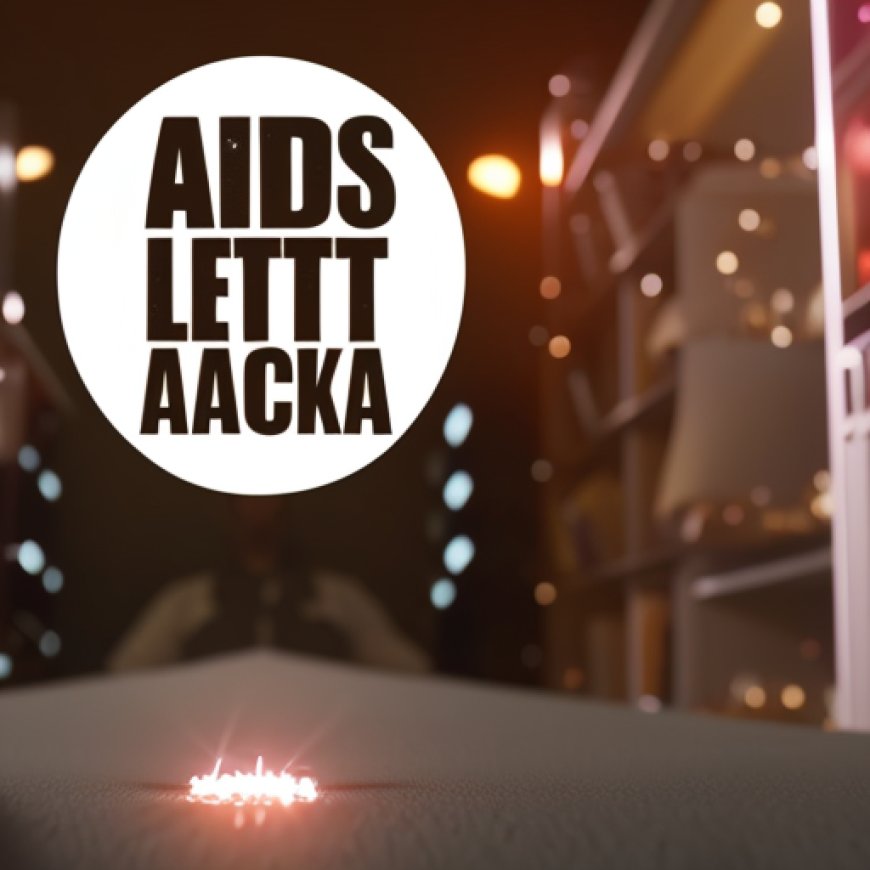AIDS Denialism Is Back. We Can’t Let It Take Root.
AIDS Denialism Is Back. We Can’t Let It Take Root. The Nation


Society / March 8, 2024
Joe Rogan, RFK Jr., and others are pushing long-discredited conspiracy junk about HIV and AIDS. Here’s how we should deal with them.

Every epidemic spawns conspiracy theories. I grew up swatting away claims that HIV didn’t cause AIDS and that antiretroviral drugs were poison. Because, yes, there were people long ago, a small coterie including magazine writers, scientists from other fields, and Nobel laureates gone to seed who decided that the mass of scientific evidence was wrong and that everything from amyl nitrate to jizz to AIDS drugs themselves was responsible for a worldwide pandemic.
Conspiracies can kill. When South African President Thabo Mbeki, decided that these “alternative facts” were indeed true after too many late-night sessions surfing the Internet on Netscape in the late 1990s, he brought his country’s medical response to HIV/AIDS to a screeching halt. A Harvard study suggested that thanks to President Mbeki’s policies “more than 330,000 people died prematurely from HIV/AIDS between 2000 and 2005…and at least 35,000 babies were born with HIV infections that could have been prevented.” A group of us back then—people living with HIV, activists, and scientists—gathered to combat this nonsense under the banner of a website called AIDSTruth. After Mbeki lost the reins of power in 2008, South Africa’s policies shifted and the country now has the largest antiretroviral therapy program in the world. In 2015, AIDSTruth decided to mothball the website, as AIDS denialism was now history.
Plus ça change. It’s now 2024 and AIDS denialism is back, this time advanced by Joe Rogan, Bret Weinstein, and the least of the lesser Kennedys, RFK Jr. Not satisfied with their promotion of Covid conspiracies and anti-vax hysteria—which, judging by the continued spread of Covid and childhood infections like measles, has been a big success—this sad little trio has turned its attention to an even older set of myths. Weinstein, a professor-turned-crank with a depressingly large following, went on Rogan’s podcast recently and disseminated long-discredited junk about what causes HIV and AIDS. Where did he get these ideas? From RFK Jr., of course.
I don’t have time to delve into the psychology and politics of AIDS denialism—though it contains more than a little bit of racism, homophobia, and antisemitism—but I recommend Seth Kalichman’s Denying AIDS: Conspiracy Theories, Pseudoscience, and Human Tragedy and Nicoli Nattrass’s Mortal Combat: AIDS Denialism and the Struggle for Antiretrovirals in South Africa to those interested in understanding its domestic and global roots and impact.
All these years later, it’s questionable how much of an impact the new AIDS denialists will have. But there is also the question of how scientists and the rest of us should respond to denialism. Pascal Diethelm and Martin McKee have a wonderful article on this in the European Journal of Public Health from 2009, which discusses how to address denialism in all its manifestations from AIDS, to evolution, to climate change.
Diethelm and McKee suggest
SDGs, Targets, and Indicators
1. Which SDGs are addressed or connected to the issues highlighted in the article?
- SDG 3: Good Health and Well-being
- SDG 10: Reduced Inequalities
- SDG 16: Peace, Justice, and Strong Institutions
2. What specific targets under those SDGs can be identified based on the article’s content?
- SDG 3.3: By 2030, end the epidemics of AIDS, tuberculosis, malaria, and neglected tropical diseases and combat hepatitis, water-borne diseases, and other communicable diseases.
- SDG 10.3: Ensure equal opportunity and reduce inequalities of outcome, including by eliminating discriminatory laws, policies, and practices and promoting appropriate legislation, policies, and action in this regard.
- SDG 16.6: Develop effective, accountable, and transparent institutions at all levels.
3. Are there any indicators mentioned or implied in the article that can be used to measure progress towards the identified targets?
- Indicator for SDG 3.3: Number of new HIV infections per year.
- Indicator for SDG 10.3: Existence of laws and policies that promote equality and non-discrimination in healthcare.
- Indicator for SDG 16.6: Transparency and accountability of institutions involved in healthcare policy-making.
Table: SDGs, Targets, and Indicators
| SDGs | Targets | Indicators |
|---|---|---|
| SDG 3: Good Health and Well-being | SDG 3.3: By 2030, end the epidemics of AIDS, tuberculosis, malaria, and neglected tropical diseases and combat hepatitis, water-borne diseases, and other communicable diseases. | Number of new HIV infections per year. |
| SDG 10: Reduced Inequalities | SDG 10.3: Ensure equal opportunity and reduce inequalities of outcome, including by eliminating discriminatory laws, policies, and practices and promoting appropriate legislation, policies, and action in this regard. | Existence of laws and policies that promote equality and non-discrimination in healthcare. |
| SDG 16: Peace, Justice, and Strong Institutions | SDG 16.6: Develop effective, accountable, and transparent institutions at all levels. | Transparency and accountability of institutions involved in healthcare policy-making. |
Behold! This splendid article springs forth from the wellspring of knowledge, shaped by a wondrous proprietary AI technology that delved into a vast ocean of data, illuminating the path towards the Sustainable Development Goals. Remember that all rights are reserved by SDG Investors LLC, empowering us to champion progress together.
Source: thenation.com

Join us, as fellow seekers of change, on a transformative journey at https://sdgtalks.ai/welcome, where you can become a member and actively contribute to shaping a brighter future.







